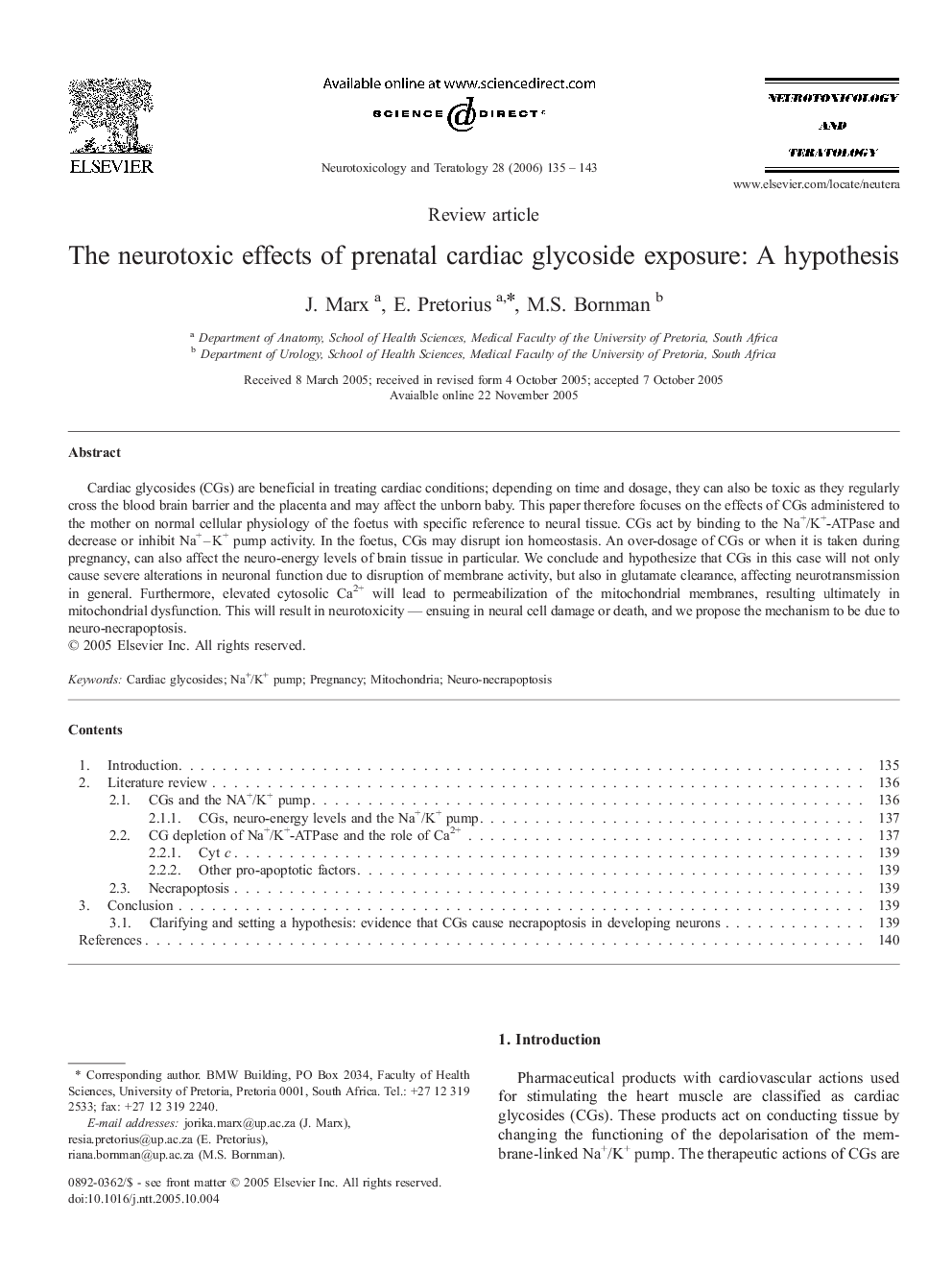| Article ID | Journal | Published Year | Pages | File Type |
|---|---|---|---|---|
| 2591900 | Neurotoxicology and Teratology | 2006 | 9 Pages |
Cardiac glycosides (CGs) are beneficial in treating cardiac conditions; depending on time and dosage, they can also be toxic as they regularly cross the blood brain barrier and the placenta and may affect the unborn baby. This paper therefore focuses on the effects of CGs administered to the mother on normal cellular physiology of the foetus with specific reference to neural tissue. CGs act by binding to the Na+/K+-ATPase and decrease or inhibit Na+–K+ pump activity. In the foetus, CGs may disrupt ion homeostasis. An over-dosage of CGs or when it is taken during pregnancy, can also affect the neuro-energy levels of brain tissue in particular. We conclude and hypothesize that CGs in this case will not only cause severe alterations in neuronal function due to disruption of membrane activity, but also in glutamate clearance, affecting neurotransmission in general. Furthermore, elevated cytosolic Ca2+ will lead to permeabilization of the mitochondrial membranes, resulting ultimately in mitochondrial dysfunction. This will result in neurotoxicity — ensuing in neural cell damage or death, and we propose the mechanism to be due to neuro-necrapoptosis.
